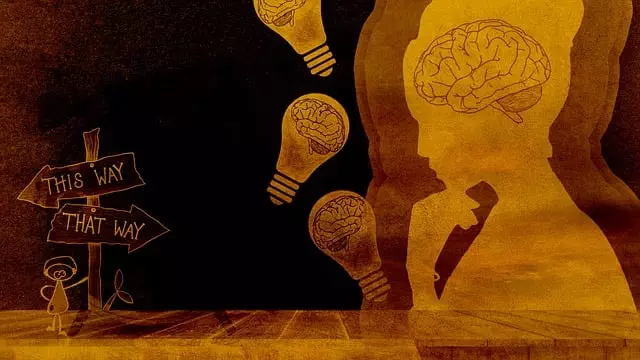“Discover how Resistance, Flexibility, and Mastery (RFM) exercises are transforming mental health care. This comprehensive guide explores the growing importance of RFM in addressing resilience, especially within the context of Kaiser Permanente’s innovative program at their Lafayette mental health access center. We’ll delve into a case study highlighting successful integration, followed by practical strategies for implementing RFM at similar facilities. Learn how these exercises impact patient outcomes and gain insights into evaluating the effectiveness of RFM programs.”
- Understanding RFM and Its Relevance in Mental Health Care
- Kaiser Permanente Lafayette: A Case Study on Integrating Resilience Building Exercises
- Practical Implementation Strategies for Mental Health Access Centers
- Measuring Success: Evaluating the Impact of RFM Programs
Understanding RFM and Its Relevance in Mental Health Care

At the Kaiser Permanente mental health access center in Lafayette, understanding and implementing Resilience, Frequency, and Motivation (RFM) models is gaining prominence as a powerful tool for enhancing patient care. RFM analysis provides a unique perspective on individual resilience and emotional coping mechanisms, which are crucial aspects of mental health treatment. By assessing a patient’s resilience—their ability to bounce back from adversity—frequency of seeking support, and intrinsic motivation, healthcare providers can tailor interventions more effectively.
This approach is particularly relevant in addressing the diverse needs of a multicultural society, emphasizing the importance of Cultural Sensitivity in Mental Healthcare Practice. Recognizing that emotional healing processes vary across cultures, incorporating RFM analysis allows for more personalized treatment plans. Moreover, it fosters a deeper understanding of patients’ emotional intelligence, enabling mental health professionals at Kaiser Permanente to create supportive environments that encourage growth and recovery, thereby improving overall treatment outcomes.
Kaiser Permanente Lafayette: A Case Study on Integrating Resilience Building Exercises

Kaiser Permanente Lafayette Mental Health Access Center serves as a compelling case study for integrating resilience-building exercises into healthcare settings. This innovative approach leverages Mind Over Matter principles to empower individuals facing mental health challenges, with a particular focus on reducing the stigma associated with mental illness. By incorporating these exercises into their services, Kaiser Permanente Lafayette demonstrates its commitment to holistic patient care and cultural competency among healthcare providers.
The center’s initiatives prioritize creating a supportive environment where patients can develop coping mechanisms tailored to their unique experiences. Through structured programs and workshops, participants engage in activities that foster resilience, self-awareness, and community support. These efforts not only enhance individual well-being but also contribute to building a more inclusive healthcare ecosystem. By addressing the Mental Illness Stigma Reduction Efforts head-on, Kaiser Permanente Lafayette is fostering an environment where everyone feels comfortable seeking help for their mental health needs. Furthermore, Healthcare Provider Cultural Competency Training plays a pivotal role in ensuring staff members are equipped to offer empathetic and effective support, reflecting the center’s dedication to inclusive healthcare solutions.
Practical Implementation Strategies for Mental Health Access Centers

Implementing practical strategies for mental health access centers like Kaiser Permanente’s Lafayette location is a multifaceted process that involves several key steps. Firstly, integrating Risk Management Planning for Mental Health Professionals ensures a robust framework to handle diverse patient needs and potential risks effectively. This includes establishing clear protocols for trauma support services, given the high prevalence of traumatic experiences among many clients. By prioritising these services, centres can foster an environment where individuals feel safe and supported during their journey towards recovery.
Additionally, focusing on mood management techniques through structured programming and individualised therapy sessions can significantly enhance resilience-building exercises. Kaiser Permanente Lafayette’s mental health access centre can facilitate this by offering a range of evidence-based practices tailored to different patient populations. Such approaches not only equip individuals with coping mechanisms but also empower them to navigate life’s challenges more effectively, ultimately contributing to improved mental well-being and overall community resilience.
Measuring Success: Evaluating the Impact of RFM Programs

Evaluating the impact of RFM (Resilience, Fitness, and Mental Health) programs is crucial to understanding their effectiveness in enhancing individuals’ resilience and overall well-being. At the Kaiser Permanente Mental Health Access Center in Lafayette, success is measured through a multi-faceted approach that goes beyond simple attendance or completion rates. The center employs qualitative and quantitative methods to assess improvements in participants’ mental health, stress levels, and coping mechanisms.
This evaluation includes surveys, interviews, and progress tracking over time. By gauging changes in burnout prevention strategies, confidence-boosting techniques, and mindfulness meditation practices, the center ensures that RFM programs are achieving their intended goals. This data-driven approach allows for continuous improvement, tailoring exercises to meet the unique needs of individuals seeking mental health access at the Lafayette center, ultimately fostering a more resilient community.
Resilience, as a cornerstone of mental well-being, is increasingly recognized in healthcare circles, particularly within Kaiser Permanente mental health access centers like those in Lafayette. The successful implementation of RFM (Recovery-Focused Mental Health) models, as seen in the case study, demonstrates significant benefits for patients. By integrating resilience-building exercises tailored to individual needs, these centers foster not just recovery but also enhanced coping mechanisms and overall life satisfaction. The practical strategies outlined in this article provide a roadmap for other mental health access centers aiming to adopt RFM, emphasizing the importance of measured progress through evaluation. This approach ensures that programs are effective and adaptable, ultimately improving patient outcomes in the Kaiser Permanente Lafayette model.






